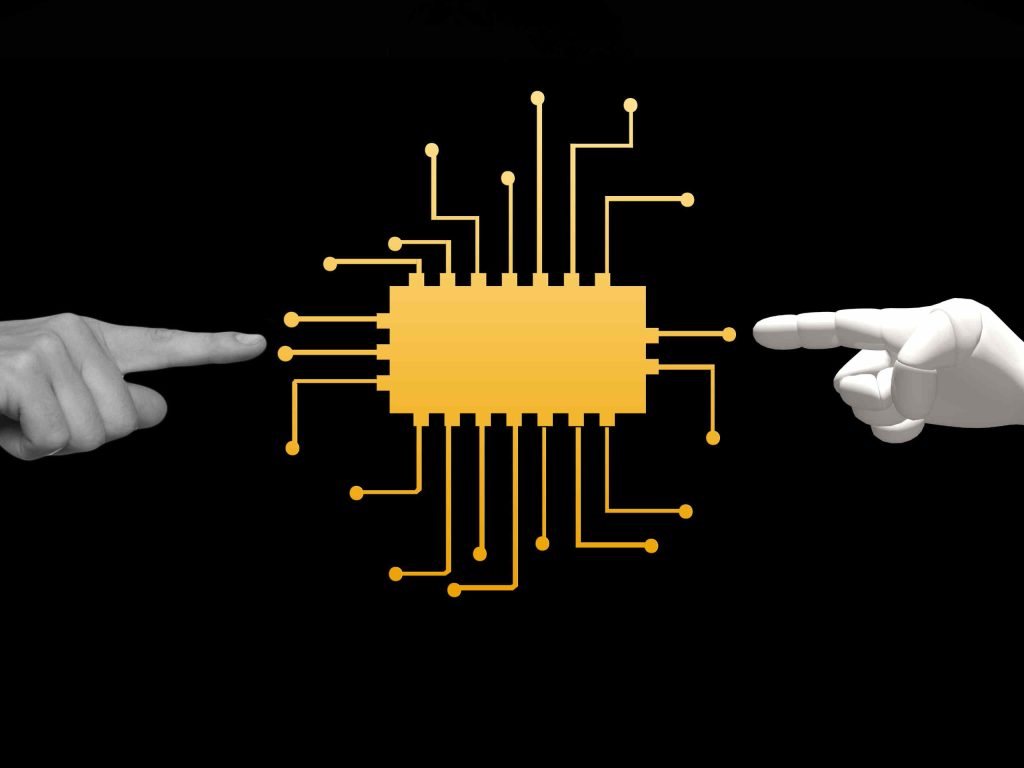
“All employees are supported and encouraged in their personal skills in order to drive the company's success forward in the long term.”
Sebastian Heinz, FLOWIT
Artificial intelligence has been finding its way into all relevant industries and business functions for some time now, including the hotel and catering industry. Anyone who thinks that there are no exciting use cases for AI here is mistaken.
Hotels and restaurants can create added value in various areas through the clever use of their data. Here are a few examples:
Genusspunkt: How can we imagine how FLOWIT works? Feedback from all employees in real time, how does this work?
Sebastian Heinz: The way FLOWIT works is based on the regular collection of feedback from all employees in real time via an app (web and mobile). FLOWIT provides so-called competence cards from which all employees select those (we recommend two) that they would like to work on. All employees then assess their current performance and their goals for the coming weeks in freely selectable cycles. Supervisors can confirm or reject the competence cards and suggest other goals.
The app also provides an overview of the existing skills in the company, which is helpful when putting together teams and for internal succession planning. Employees can obtain feedback at any time, which focuses on behavior and skills, not personality. The generative AI used for FLOWIT helps to provide better feedback and to analyze the open feedback with sentiment and thematic categorizations. AI-powered analysis of feedback data can proactively identify individual needs and challenges, leading to improved employee satisfaction and retention.
The app also records employees' motivation, mood and view of the company and alerts the responsible team leaders via push notifications if discrepancies are registered. FLOWIT's technology therefore helps to improve employee development and motivation as well as communication and collaboration within the company.
For which company sizes is FLOWIT suitable?
FLOWIT is basically suitable for all companies that have established a professional HR system or are planning to do so. From our previous customer relationships across various sectors, these are generally companies with around 30 employees or more. This is where the first challenges in dealing with feedback, performance management and engagement become apparent due to the increasing complexity of the company. FLOWIT also scales seamlessly for larger companies.
What are FLOWIT's goals?
FLOWIT has set itself the goal of ensuring that employees feel heard in their working environment and experience self-efficacy with regard to their own development. The traditional appraisal system is increasingly being rejected by companies and employees alike and is gradually being replaced by agile learning and feedback methods. FLOWIT supports companies on this path by providing a digital, contemporary platform that enables agile learning, feedback and feedforward in everyday working life. All employees are supported and encouraged in their personal skills in order to drive the company's success in the long term.
FLOWIT aims to enable employees to contribute their individual strengths and talents to the company in the best possible way. No matter where the company currently stands, FLOWIT provides simple and efficient support on this journey with a digital coach. By promoting the individual skills and talents of employees, FLOWIT also addresses the shortage of skilled workers and helps to retain existing employees in the long term. At the same time, good internal HR marketing also strengthens the external perception of the company. Employees who feel supported by FLOWIT are more satisfied and motivated, which ultimately has a positive effect on the quality of the services.
Can you give us a best-practice example from the hotel or catering industry?
Using value cards (similar to the aforementioned competence cards), goals are set at both team and individual level that promote dialog between employees and managers at eye level. In this way, employees regularly reflect on the company's values and an active dialog takes place. The addition of pulse surveys, which are evaluated using various AI functions, resulted in a 30% reduction in turnover intentions in the first year after the introduction of FLOWIT. This is an excellent result, especially in the hotel and restaurant industry, which is known to be at risk of churn.
FLOWIT thus shows how artificial intelligence can be used in the hotel and catering industry to improve communication, employee development and employee satisfaction and have a positive impact on operational processes and the quality of services.

There is a tension between digital progress and emotional hospitality that is redefining the restaurant industry. AI, automation, and data-based processes are changing not only workflows, but also attitudes, communication, and expectations. What was once considered a gimmick is now becoming a strategic necessity. And perhaps the most important question of our time: How can humans remain relevant in a world that is becoming increasingly digital?
Pizza is one of those dishes that everyone has an opinion about. Almost everyone thinks they understand it—and yet a surprising number of people fail at this culinary “common property”. In Vienna and beyond, Neapolitan pizzerias are now springing up everywhere, some excellent, others whose interest in good pizza comes to an abrupt end. As we all know, quantity does not equal quality. Or, to quote Martin Albrich from the First Vienna Pizza Association: Pizza is bread. And bread forgives nothing.


Artificial intelligence has been finding its way into all relevant industries and business functions for some time now, including the hotel and catering industry. Anyone who thinks that there are no exciting use cases for AI here is mistaken.